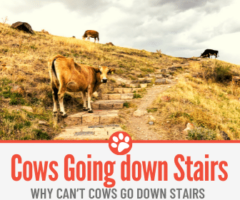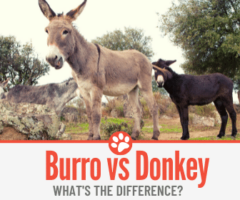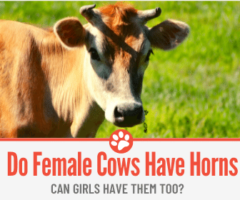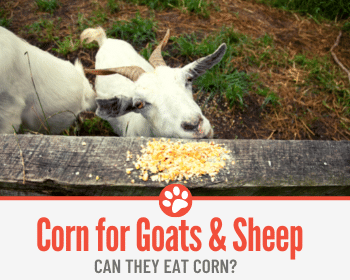 Corn is one of those foods that there is a lot of confusing information about, especially when it comes to feeding animals such as Goats or Sheep.
Corn is one of those foods that there is a lot of confusing information about, especially when it comes to feeding animals such as Goats or Sheep.
In this Guide we will learn if it’s safe to Feed your Goats or Sheep with Corn and which corn is the best.
Can Goats & Sheep Eat Corn?
Yes, Goats and Sheep CAN both eat corn BUT as with a lot of things, it’s not just a straight-forward “yes”. There are certain rules involved to make sure you keep your livestock/pets in optimum health and failure to follow these guidelines could result in acidosis and the death of your Goat or Sheep.
Can Goats Eat Corn
Feeding too much corn, the wrong type of corn or feeding corn at the wrong times can all have serious consequences, so continue reading below for the definitive guide on how to safely allow your goats to eat corn.
Is Corn Good For Goats?
Goats (and sheep) are ruminants – these are animals that have 4 stomach compartments unlike us humans, who have just the one. This means that they are able to break down types of food that non-ruminants cannot, like grass, grains, seeds, etc.
These types of food pass through our digestive systems and come out the other end still whole – as most of us will have observed at some time!
Corn can be a good option of feed for goats but should ALWAYS be introduced gradually and only be used when they require extra energy, like when they are pregnant or lactating (providing milk), or when they are being bred for meat.
Goats can also eat corn when there is insufficient browsing food available for them, like during the summertime, but it is extremely important that goats should only eat corn in the correct form and in the right amounts to avoid acidosis, which is basically grain poisoning (see How Much Corn To Feed To Goats below.)
Whole Corn
Goats should only eat crushed corn. Unlike sheep, goats cannot digest whole corn properly and this can lead to serious problems with their digestive systems, and even death! So please, no feeding whole corn to your goats!
Cracked Corn
Yes absolutely goats can eat cracked corn. Unlike whole corn, goats are able to digest cracked corn far more thoroughly and get the essential vitamins and minerals from it in this form. As the corn is cracked, it has, in essence, already undergone the first part of digestion by being broken down.
Therefore it is far easier for the goat’s digestive system to do the rest of the processing into a digestible energy source.
Corn Husks
Corn husks are the outer sheaf of the whole corn cob. They are very fibrous and difficult to digest for most animals, but goats are able to happily deal with these. They can be chopped up and fed in moderation but please remember they should not be used as a substitute for hay or alfalfa and only fed in limited amounts.
Also they should be introduced gradually into the goat’s diet to avoid digestive issues. Corn husks are often used for bedding and to keep areas dry as they take a lot longer to decompose than straw. So this gives an indication of just how fibrous they really are.
Corn Cobs
Goats LOVE corn cobs. You can most certainly feed them the cobs and sometimes they will use their hooves to grind them to get the kernels out, or more often than not they will just munch into the whole thing and it will disappear within a few mouthfuls. Once again, this is a food which should be provided in moderation and really just as a treat.
Corn Silage
Silage is basically the anaerobic fermentation of plant matter. That means it is sealed without oxygen being able to enter and it decomposes via fermentation.
The fermentation process takes approx. 2 weeks. Corn silage is made from the whole plant and the end result is a feed rich in fatty acids and vitamins but you should be aware that it is lacking protein and calcium. So although goats can eat corn silage, protein and calcium supplementation is essential to keep them in good health.
Cooked Corn
Yes goats can eat cooked corn – but why would you go to the trouble of cooking it for them when they eat it raw?!?!? Remember that vitamins and minerals are greatly reduced once foods are cooked and you want your animals to have the most nutrients for the lowest cost so feed raw!
How Much Corn To Feed Goats
So we have covered what types of corn you should and shouldn’t feed to goats, but how much corn should you feed to goats? As a general rule, corn should never exceed more than 50% of your goat’s overall diet, and really this amount should only be given to pregnant, lactating or meat producing animals.
Corn is quite low in protein (8% only 6% of which is digestible protein) but it does contain good calcium level but this can cause kidney problems to goats if fed in excess – especially billy goats (males). Here is an easy to calculate guideline for feeding corn or indeed ANY grain to goats:
Lactating / Pregnant Female = 1.5% of bodyweight (max per day)
Meat goats = 1% of bodyweight (max per day)
Is Corn Bad for Goats, Can Corn Kill Goats?
As mentioned above, acidosis can occur if goats eat high levels of grain. Acidosis is when the pH levels inside the rumen get too low and acidic. This results in symptoms such as diarrhoea, discomfort in the abdomen, panting and eating far less than normal.
If allowed to become acute, there is a high chance the goat will die. It is therefore VERY important that you follow the guidelines of how much corn to feed goats to ensure their good health and longevity.
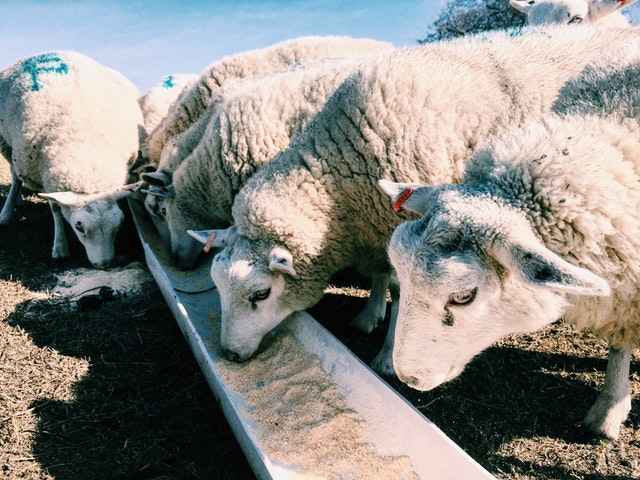
Can Sheep Eat Corn & Is it good for Sheep?
Corn is a great food for sheep. Unlike goats, sheep can digest corn in all forms and more efficiently. Corn contains more calories than oats, wheat or barley and is a great choice of feed for sheep.
Especially when grazing land is low on supply through hot summers and when there has not been much rain. Another good use for feeding corn to sheep is for “flushing” the ewes (females).
This is when the ewe is given an increase in nutrients to improve body condition prior to the breeding season so that she increases her rate of ovulation and improves reproductive performance.
But as with goats, corn should be fed in moderation and added gradually to the diet as sheep can also suffer from acidosis. So keep reading for more detailed information on feeding corn to sheep.
Can Sheep Eat Whole Corn
Yes! Whole corn is great for sheep as they have the capacity to digest it fully, unlike the goat. The very important exception to this rule is lambs – they should NOT be given whole corn until they are 2 months old.
Can Sheep Eat Cracked Corn
Yes sheep can eat cracked corn. It is especially suitable for lambs as they cannot eat whole corn as they have not yet fully developed all 4 parts of their ruminant digestive systems. Cracked corn is whole corn roughly broken down and therefore is more easily digestible.
Corn Husks
As with goats, sheep can happily feed on corn husks. Their high fibre content is great for the sheep’s digestive system and they provide good amounts of energy.
They can be fed fresh or dried to sheep and they will love them! Just remember the golden rule of not too much and gradual addition to their diet. Also, because these are so fibrous, always make sure there is plenty of water available for your sheep to aid digestion.
Corn Cobs
Yes, sheep can eat corn cobs. In fact they love them! Fresh or dried can be fed to sheep but once again do exercise moderation as too much of a good thing can spell trouble down the line. Always remember that a sheep is meant to pasture for 7-9 hours per day – that means eat grass and hay! Grains are given as a top up or treat.
Corn Silage
Corn silage is a great feed for sheep. As we already now know, silage has gone through a process of fermentation. But one important thing to note is that silage must be prepared in exacting conditions.
If it is not kept sealed during the fermenting process, bacteria can enter and form listeria which can be deadly to your flock. So always make sure you purchase high quality silage which has been produced in the correct environment.
Cooked Corn
Sheep can eat cooked corn but it is always better to feed as nature intended – raw! These are animals that graze on pasture and would naturally come across corn every now and then if they’re lucky so cooked corn wouldn’t come into their natural diet.
Of course if you have some left over after dinner you can give it to them but other than that – there would be no sense in it.
How Much Corn To Feed Sheep
As with all animals, it is really important to get their feed right to ensure optimal nutrition and avoid health problems. These are the guidelines we recommend – 50g per day initially, gradually increasing it to a maximum of 500g per day mixed in with alfalfa or grass hay to ensure good fibre.
Remember to only feed lambs cracked corn and NOT whole corn until they are at least 60 days old.
Can Corn be bad for Sheep?
Sheep do not have as much problems with eating corn as goats, however they should not be fed ONLY on corn or too much of it,as this can as well lead to acidosis.
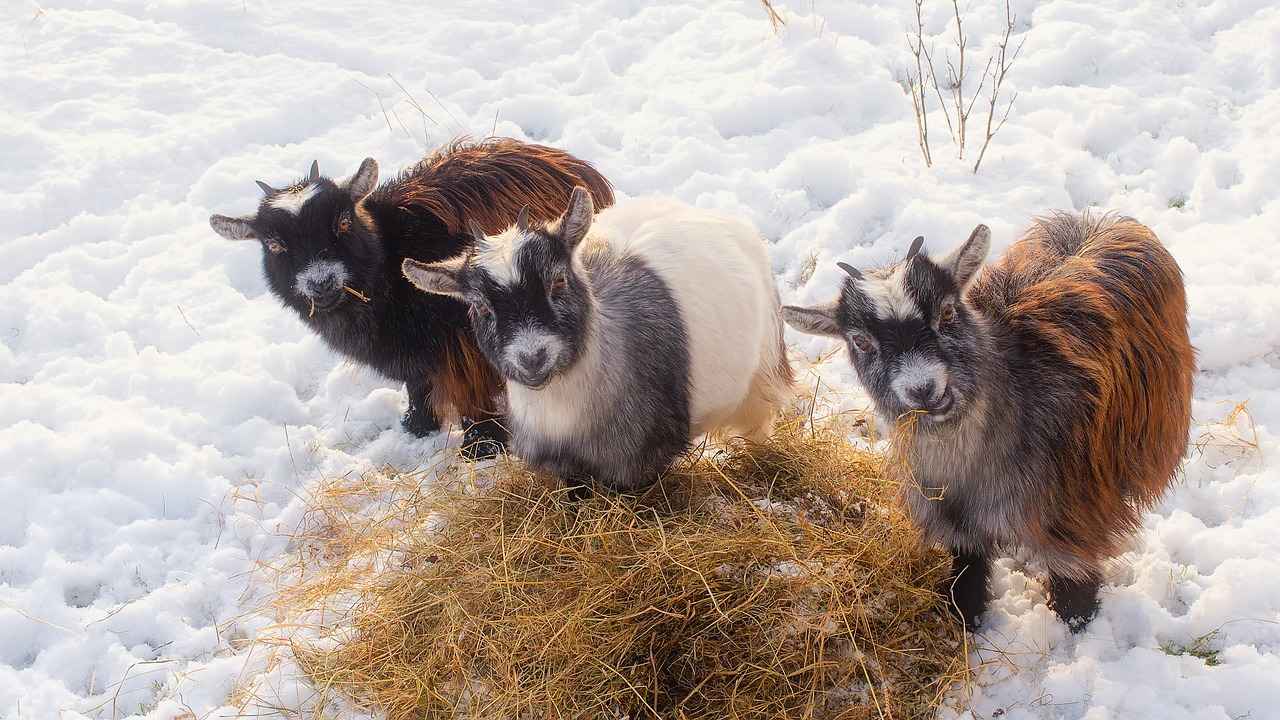
Related Questions:
What Kind Of Grain Is Best For Goats & Sheep?
The best grains that both goats and sheep should be fed are barley, rye, wheat, sorghum, maize/corn and oats. When feeding grain the best method is to have a nice balanced mix rather than use just the one type.
This will provide a balanced level of essential nutrients, vitamins, minerals etc. It will also give variety of taste and textures to keep you sheep happy. Always put their grain in a feeding trough which allows 1 metres of feeding space to every 6 goats/sheep.
Can Goats Eat Corn Tortillas?
Really?! This is a question we have been asked! Look, a goat will eat pretty much anything you give it but why would you want to give them processed human food when they are animals?
You can certainly give them a corn tortilla as a snack once in a blue moon, however Make sure to feed your goat properly and not only with corn Tortillas 🙂
Can Goats Eat Cornflakes?
Yep this was yet another question we were asked. Of course they will eat them but once again, cornflakes are processed stuff churned out for humans to eat and have very dubious nutritional qualities.
Also they are way more expensive than proper animal feed so once again it begs the question – “why”? When it comes to feeding animals just stick to the correct foods that nature provides.


